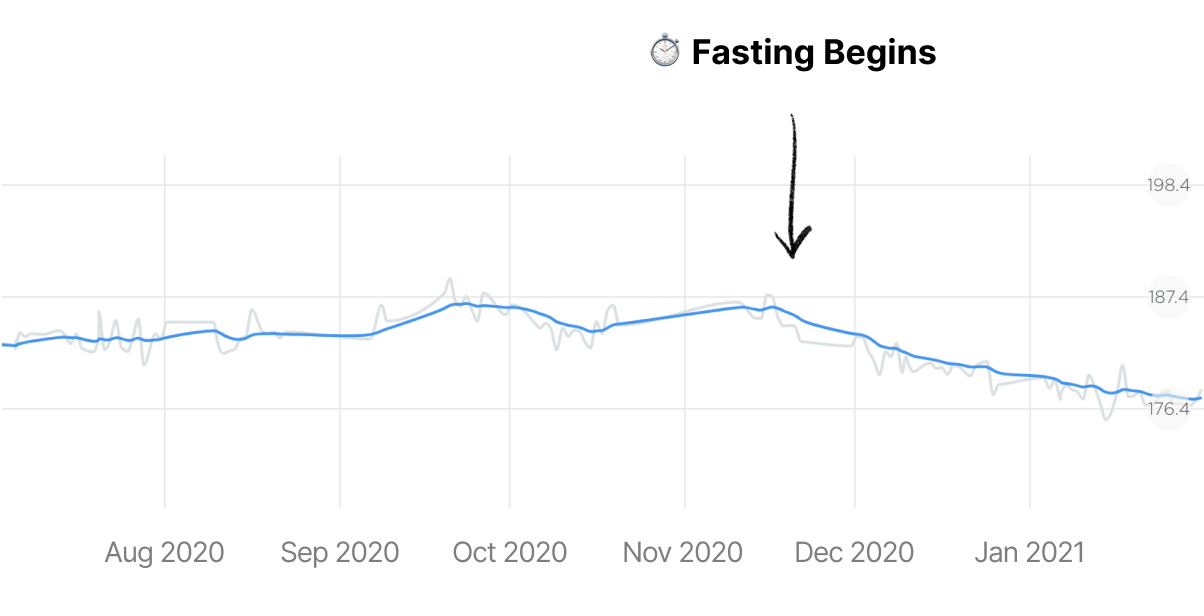Intermittent Fasting 101
What’s the most successful rebranding of the past 10 years? Airbnb? Google? Burger King? Nope. The award goes to….🥁🥁🥁….skipping breakfast! What was once best known as an excuse for lazy teenagers who didn’t feel like making a bowl of cereal is now being shouted from the rooftops from health enthusiasts and experts. Its new name: intermittent fasting.
For those that aren’t aware, there is an unwritten rule of intermittent fasting: you must unabashedly tell all your friends and family about how amazing it is. After a couple months of trying it out, it’s time for me to follow orders.
Fasting 101
When we think of nutrition, we often focus on how much we eat (calories) and what we eat (fats carbs, proteins, etc.) However, there is an important and often underemphasized third dimension: when we eat. As described on a popular fasting app’s website:
Three meals a day is a modern accident. Our metabolisms are programmed for periods of feast and famine. Unlike constantly-grazing cows with four stomachs, we aren’t built to maintain a constant drip of food.
The gist of intermittent fasting is to reduce your eating window. There are a variety of styles. The 13:11 Circadian Rhythm style consists of a 13 hour fast followed by an 11 hour eating window. It tries to replicate the body’s natural clock by fasting roughly after sunset until morning. The 16:8 is the most popular. To reach the 16 hour fasting goal, it’s common to fast from dinner to lunch the next day. Aka skipping breakfast.
The Benefits of Fasting
People are excited about intermittent fasting for good reason. Numerous studies show promising physical and mental benefits. For example, it can help you:
- ⚡️ Boost energy
- 💪 Lose weight
- ✨ Reduce inflammation
- 🩸 Reduce insulin resistance (driver of Type 2 diabetes)
- 🧠 Increase mental clarity
You can read about these benefits and others in more detail here and here.
My Experience
Today is my 65th day in a row fasting and I plan to stick with it for the foreseeable future. I’m impressed with its ease and effectiveness.
I started with a 13:11 style and quickly moved to a 16:8 structure. I skip breakfast and have my first meal around 12-2pm. During the first week I was a little hungry and tired in the morning, but now I feel great right up until my first meal of the day. In fact, I now frequently extend the fast to 16-20 hours.
I’ve noticed a number of physical and mental benefits. And unlike other dietary changes I actually enjoy it. I can harness my inner teenager and be lazy about breakfast. If I feel like ice cream I can have some damn ice cream and not feel guilty about it. In return, I have more energy and mental clarity. I’m also at my lowest weight level and % body fat since the prime of my collegiate soccer days. Below is how its impacted my weight so far:

As I learned in The Obesity Code, we have a natural weight set point. Kinda like a body weight thermostat. While traditional diets that focus on calorie reduction can help you lost weight in the short term, they rarely work long term because we naturally gravitate back to our set point. In contrast, fasting can actually change your set point, enabling long term weight change. While it’s still early, my initial results are promising.
While my experience has been positive, it’s important to mention that fasting is NOT for everyone. Everybody’s body responds differently. Accordingly, it’s important to consult a doctor before trying it. This is especially true if you have diabetes, have problems with blood sugar regulation, take medications, are underweight, have a history of eating disorders, or are pregnant.
Fasting Tips
The Obesity Code contains a bunch of great intermittent fasting tips. I wouldn’t have been able to beat the initial hunger and fatigue without them. Straight from the book:
- 💧 Drink water: Start each morning with a full eight-ounce glass of water.
- 🤹♂️ Stay busy: It’ll keep your mind off food.
- ☕️ Drink coffee: Coffee is a mild appetite suppressant. Green tea, black tea and bone broth may also help.
- 🏄♂️ Ride the waves: Hunger comes in waves; it is not continuous. When it hits, slowly drink a glass of water or a hot cup of coffee. Often by the time you’ve finished, your hunger will have passed.
- 🤫 Don’t tell everybody you are fasting: Most people will try to discourage you, as they do not understand the benefits. A close-knit support group is beneficial, but telling everybody you know is not a good idea.
- 📅 Give yourself one month: It takes time for your body to get used to fasting. The first few times you fast may be difficult, so be prepared. Don’t be discouraged. It will get easier.
- 🥑 Follow a nutritious diet on non-fast days: Intermittent fasting is not an excuse to eat whatever you like. During non-fasting days, stick to a nutritious diet low in sugars and refined carbohydrates.
- 🍽 Don’t binge: After fasting, pretend it never happened. Eat normally, as if you had never fasted
Interested in learning more? Check out: